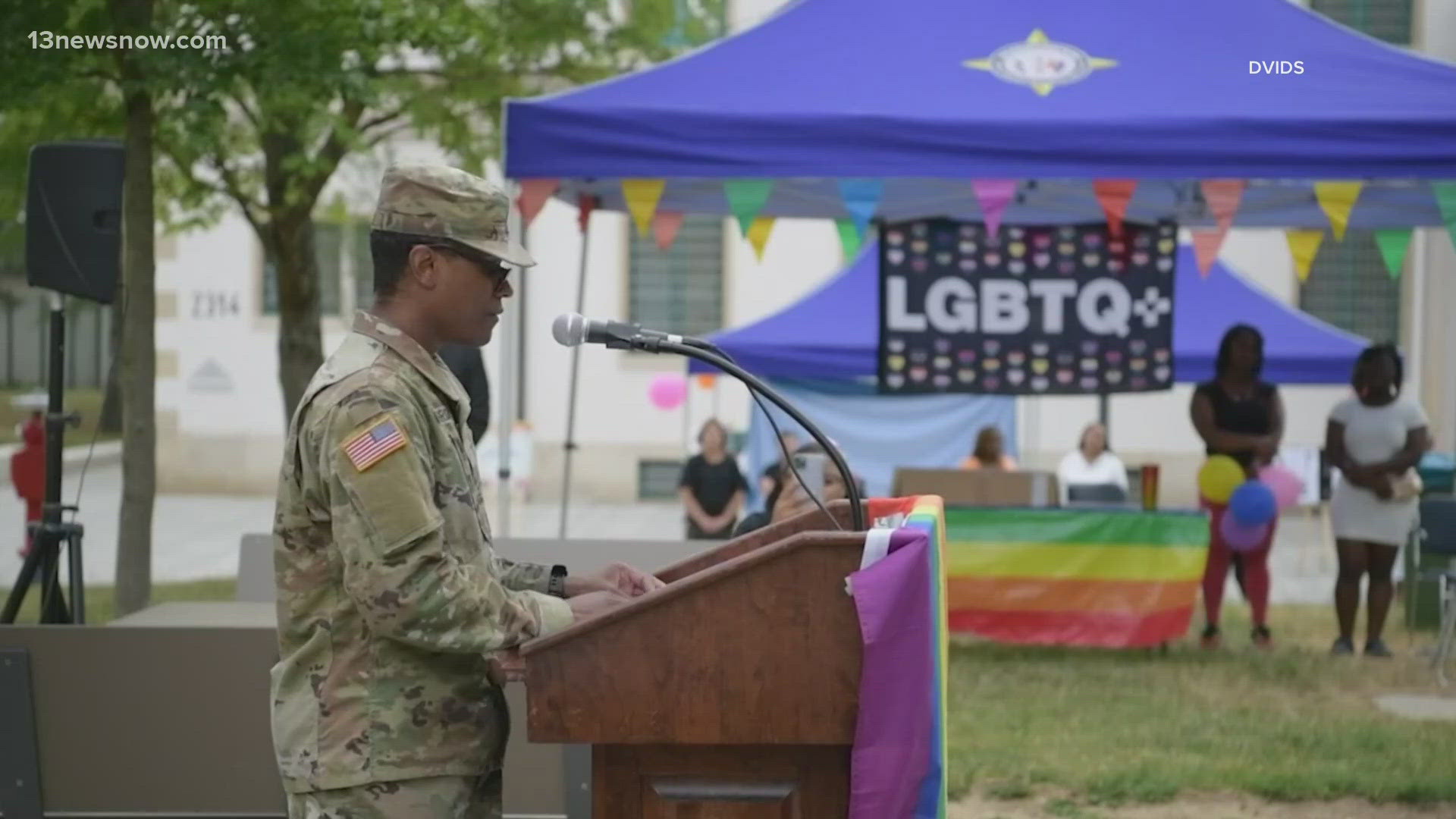NORFOLK, Va. — Lesbian, gay, bisexual and transgender veterans are more likely to struggle to access health care, suffer from depression and face other serious medical issues than their heterosexual peers, according to a new study.
The nonprofit global policy think tank the RAND Corporation's report published last week showed that vets who identify as non-heterosexual were significantly more likely to report having been unable to afford medical care in the past year than heterosexual veterans.
The report says sexual minority groups were more likely to rate their mental health as "not good."
And the report said LGBTQ+ vets had higher rates of alcohol use, smoking and elevated odds of having a lifetime history of major depressive disorder compared to their heterosexual peers.
"It's hard to be encouraged," said Megan Schuler, a health policy researcher at the RAND Corporation and lead author of the report, who added, "I was not necessarily surprised" by the findings.
Schuler said the report points to the need for improved outreach to minority groups into the veterans' community to ensure all vets are getting the information and care they need.
"LGBTQ+ veterans describe that sometimes they don't feel comfortable in (Veterans Affairs) VA settings, either due to experiences with health care providers or other patients they encounter," she said. "These veterans volunteer military service, serving their country and absolutely should be entitled to the full range of veterans benefits, and prioritizing equitable health outcomes among all veterans should be a really key national priority."
The report says that where a veteran resides matters, noting that "living in a state with more favorable LGBTQ+ policy climate was associated with better health-related outcomes."
The report surveyed more than 2 million veterans across the country in every state between 2015 and 2021.

